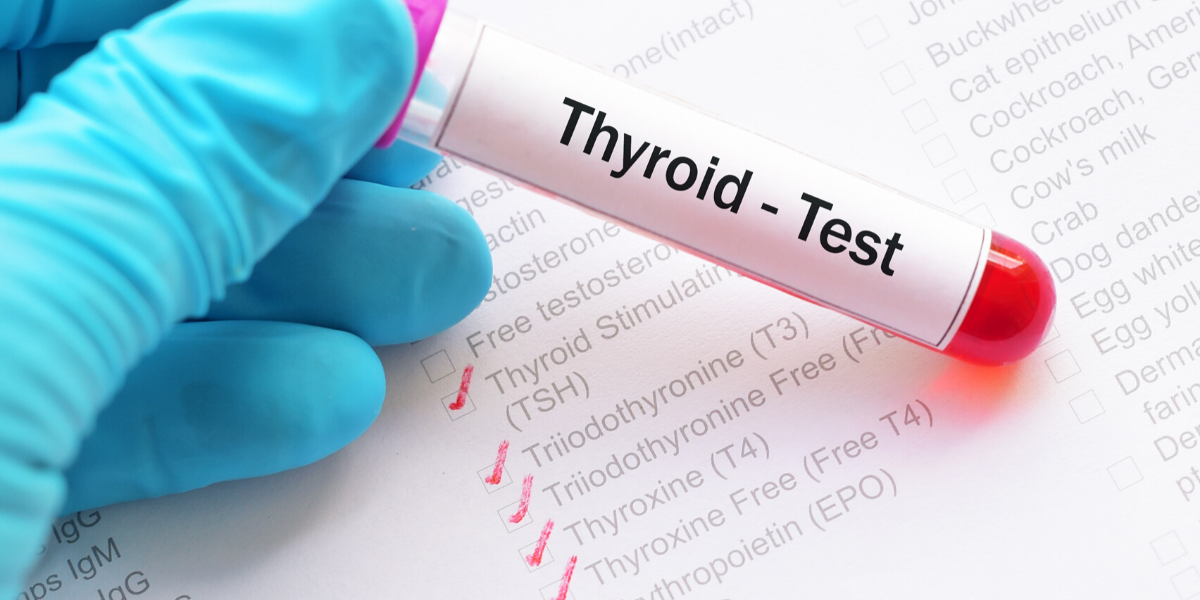Ashwagandha is an herbal supplement that's been popular forever. It's touted to help more things than you can shake a stick at, including hypothyroidism. But does it really work – does it help people with hypothyroidism? If yes, what's the correct dosage, and what brands have been tested? In this review, you'll learn about clinical research, especially the studies involving humans. Does it have any side effects? I'll discuss that, too.
Thyroid Health And TSH Level

Measuring thyroid-stimulating hormone (TSH) levels is the most common way your doctor will determine if you have hypothyroidism. TSH is the hormone that tells the thyroid to make its thyroid hormones (called T3 and T4). The higher the TSH level, the more likely you might have a sluggish thyroid gland.
So, what's a normal TSH level? Generally, the normal level for TSH ranges from 0.4 milli-international units per liter to 5.0 milli-international units per liter. If you are between 4.0 -5.0 then you might have hypothyroidism (underactive thyroid).
Blood Test Thyroid Reference Ranges:
- TSH: 0.4 to 4.5 mIU/L
- T3: 100 – 200 ng/dL
- T4: 5.0 – 11.0 ug/dL
Video Review
or watch on my Youtube channel.
Ashwagandha Hypothyroidism Research
So, is ashwagandha a natural treatment for hypothyroidism? To answer that question, let's focus on human research.
Ashwagandha Study 1
Researchers in India conducted an 8-week study where 50 people with subclinical hypothyroidism were given either:
- 600 mg ashwagandha (KSM-66 Brand)
- placebo
Results:
After taking ashwagandha for 8 weeks:
- T3 levels increased significantly by 41%
- T4 levels increased significantly by 20%
- TSH levels declined significantly
No improvements were seen in the placebo group. That's good.
Study Problems
While the results are encouraging, it's worth pointing out that TSH levels didn't drop significantly. TSH declined from 6.5 to 5.3 during the study. Basically, it means everybody taking ashwagandha still had subclinical hypothyroidism at the end of the study.
Ashwagandha Study 2
In this investigation, ten people with bipolar disorder were given either:
- Placebo
- 500 mg ashwagandha (Sensoril Brand)
for 8 weeks. Most of the people did not have hypothyroidism.
Results
In those taking ashwagandha, the results varied:
- In some people, T4 hormone levels increased
- Some people saw decreases in TSH levels, while others did not
Study Problems
- The people were taking medications for their bipolar conditions
- The study was not specifically about hypothyroidism and ashwagandha
- Of the 10 people reported on, only 3 were taking ashwagandha
Making Sense Of The Research
When looking at the research, remember:
- There are not many studies investigating thyroid function
- We need better studies to figure out how effective it is
- The studies used 500 mg and 600mg a day
- If it works, the results may be mild
- We don't know if it works beyond 8 weeks of use
- It may not work for everyone
- Both KSM-66 and Sensoril brands have been studied.
Ashwagandha vs. Black Seeds
Nigella sativa (black seeds) are also sometimes advertised to help low-functioning thyroid glands. At least one study appears to reveal black seeds can lower TSH levels and reduce thyroid autoantibodies. That's good. So far, researchers have not determined whether black seeds are better than ashwagandha. We also don't know if they work better together either.
So, if you're trying to decide which is right for you, my advice would be to pick one and try it for a few months, along with monitoring your TSH levels, before moving on to something else or combining them together.
Ashwagandha Side Effects
- Start with less than recommended for the first week or two.
- Ashwagandha may not be safe if you're pregnant.
- Breastfeeding? Ask your doctor.
- Stop at least 2 weeks before surgery unless your doctor tells you otherwise.
- If you have diabetes or any autoimmune disease, ask your doctor first.
- Speak to your doctor first if you take any medications – including levothyroxine or other thyroid medicines.
There are two reports of ashwagandha causing thyrotoxicosis. This occurs when thyroid hormone levels go too high. In one report, a 32-year-old Dutch woman developed abnormally high thyroid hormone levels after taking ashwagandha for a few weeks.
In another report, a 62-year-old woman developed elevated thyroid hormone levels after taking the supplement for 2 months. She took 1950 mg per day of the supplement. The woman did not have hypothyroidism. Her symptoms went away after she stopped taking the supplement.
Symptoms of thyrotoxicosis include anxiety, weight loss, rapid heart rate, nervousness, and feelings of irritability.
Does It Work?
So far, one reasonably good study appears to show ashwagandha may help the thyroid a little bit. While some have told me the herb helped them, I'd like to see a few more studies to know for sure. Monitoring TSH levels regularly while taking the supplement is something to consider doing.
Brands used in research studies:

Leave a Reply